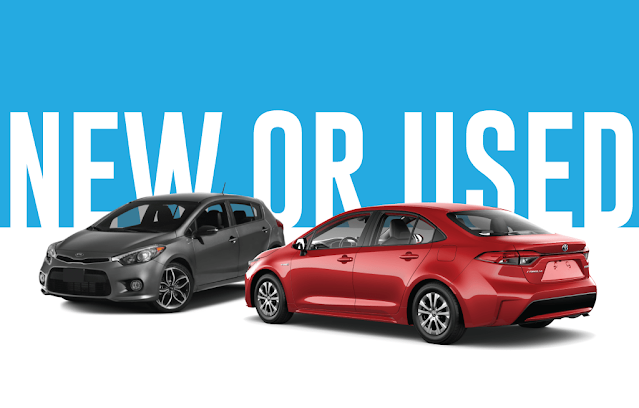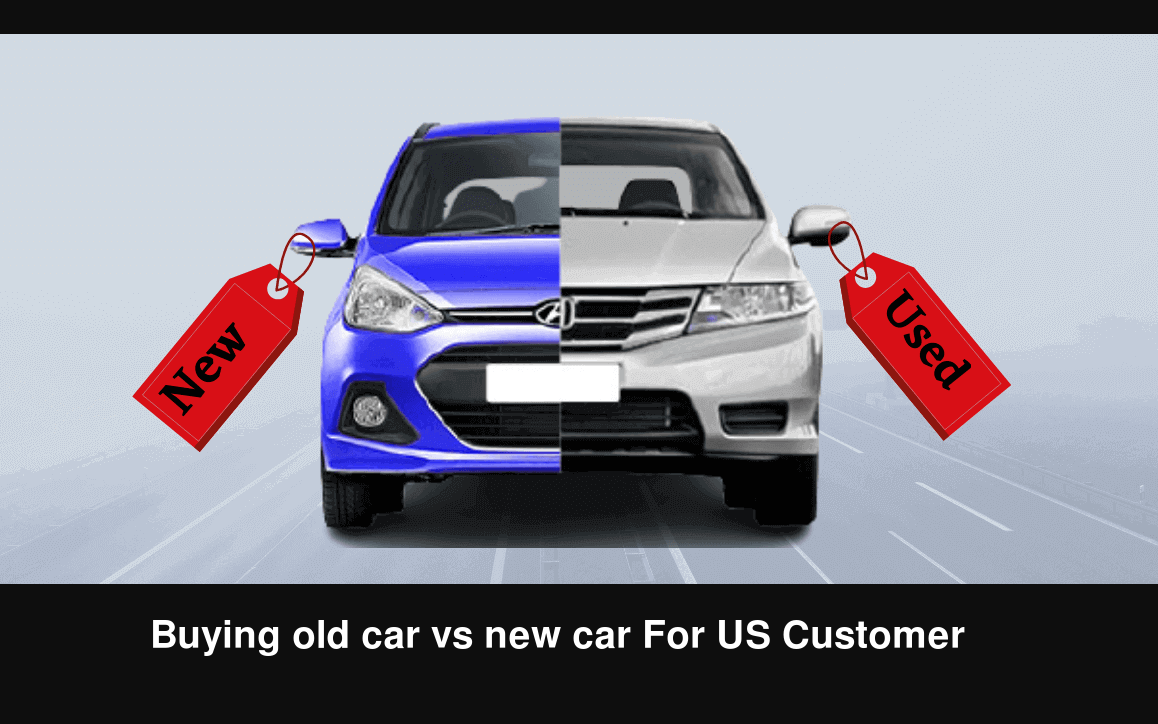Buying a car is a big financial decision — one that comes with a key question: Should you buy a new car or a used car – Used Car vs. New Car? The American automotive market in 2025 presents a fascinating dynamic for car buyers. Lingering effects of past supply chain issues, evolving economic conditions, and the accelerating transition to electric vehicles (EVs) are all shaping the landscape. Deciding between a new and a used car is more nuanced than ever, requiring a careful look at your financial situation, priorities, and long-term goals.

The Evolving Landscape of the US Car Market in 2025 – Used Car vs. New Car?
- Average Prices: As of March 2025, the average new car price in the U.S. hovers around $48,000. Meanwhile, the average used car price is around $25,128, though 3-year-old used vehicles have seen their average transaction price surpass $30,000 in Q1 2025. The price gap between new and used vehicles has narrowed slightly.
- Interest Rates: Interest rates remain a significant factor. In Q1 2025, overall average auto loan interest rates were around 6.73% for new cars and 11.87% for used cars. While rates have been high, some stabilization is occurring, and lenders continue to favor borrowers with good credit.
- Inventory: New car inventory has largely stabilized, making it easier for shoppers to find desired models. The used car market is also seeing increased inventory, particularly for more affordable models.
- Depreciation: New cars continue to depreciate quickly, losing around 20% of their value in the first year and approximately 60% within five years. Used cars have already absorbed much of this initial depreciation.
- EV Impact: The EV market is rapidly growing, influencing both new and used car segments. New EV sales are rising, and the used EV market is expanding rapidly, driven by affordability. Used EV prices have seen modest increases, and the supply of used EVs has tightened, indicating growing consumer interest.
New Car: The Allure of Freshness and Technology
Buying a new car in 2025 comes with distinct advantages, especially for those who prioritize the latest innovations and long-term peace of mind.
Pros of Buying a New Car:
- Cutting-Edge Technology: New models offer the most advanced safety features (e.g., ADAS suites), state-of-the-art infotainment systems, and connectivity options. If you want features like hands-free driving assistance, the newest EVs, or integrated smart home tech, a new car delivers.
- Full Manufacturer Warranty: This is a major benefit, covering major repairs and components for several years (typically 3-5 years bumper-to-bumper, and longer for powertrains). This significantly reduces the risk of unexpected, costly repairs.
- Better Fuel Efficiency (or EV Range): Newer engines and EV powertrains are consistently more efficient, potentially saving you money on fuel or charging over the vehicle’s lifespan.
- Customization: You can order a new car exactly to your specifications, choosing the trim, color, and optional features.
- Lower Initial Maintenance: New cars generally require minimal maintenance beyond routine fluid changes and tire rotations in their first few years.
- Prestige and “New Car Smell”: There’s an undeniable psychological satisfaction that comes with being the first owner.
- Potentially Lower Interest Rates: As mentioned, new car loans typically carry lower APRs for qualified buyers, potentially leading to lower monthly payments over the loan term compared to a used car of similar price. Manufacturer incentives, like 0% APR financing, are also more common on new vehicles.
Cons of Buying a New Car:
- Significant Depreciation: The moment you drive it off the lot, a new car loses a substantial portion of its value. This rapid initial depreciation is the biggest financial drawback.
- Higher Upfront Cost: New cars have a higher sticker price, requiring a larger down payment or a bigger loan.
- Higher Insurance Premiums: Insuring a new, higher-value vehicle typically costs more.
- More Taxes and Fees: Sales tax, registration fees, and other charges are generally higher on new cars.
- Waiting Times: While inventory has improved, some popular new models, especially certain EVs or highly demanded trims, might still have a waiting period.

Used Car: Value, Variety, and Reduced Depreciation
The used car market in 2025 continues to be a robust option, offering significant savings and a wide array of choices.
Pros of Buying a Used Car:
- Significant Savings: The primary advantage is the lower purchase price. You can often get a more premium model or a higher trim level for the same budget as a basic new car.
- Slower Depreciation: The steepest depreciation curve has already occurred with the first owner. This means your used car will lose value at a much slower rate.
- Lower Insurance Costs: Generally, older vehicles with lower market values are cheaper to insure.
- Lower Taxes and Fees: Sales tax and registration fees are based on the purchase price, so they will be lower for a used car.
- Wider Selection: The used market offers a vast array of makes, models, and years, giving you more options to find a vehicle that fits your specific needs and budget, even if it’s a model no longer produced new.
- Reliability of Modern Cars: Vehicles today are built to last longer. A well-maintained used car, even one a few years old, can provide many years of reliable service.
- Certified Pre-Owned (CPO) Programs: Many dealerships offer CPO vehicles, which are used cars that have undergone rigorous inspections and come with extended warranties from the manufacturer, bridging the gap between new and traditional used cars.
Cons of Buying a Used Car:
- Unknown History: Unless you get a comprehensive vehicle history report (like CarFax or AutoCheck) and a pre-purchase inspection by an independent mechanic, you might be unaware of past accidents, maintenance neglect, or hidden issues.
- Potentially Higher Interest Rates: Used car loans generally have higher interest rates than new car loans, which can increase your overall cost of ownership.
- Limited Warranty: Traditional used cars may come with a very limited warranty or no warranty at all (“as-is”). CPO programs mitigate this, but typically for a higher price.
- Older Technology: While many used cars from recent years still have excellent tech, you won’t always have the absolute latest features or infotainment systems.
- Potential for More Repairs: While modern cars are reliable, an older vehicle inherently has a higher chance of needing repairs sooner than a new one.
Which is Right for You in 2025? Used Car vs. New Car?

- Choose a New Car if:
- You prioritize having the latest technology, safety features (including advanced ADAS), and cutting-edge design.
- You want the full manufacturer’s warranty for maximum peace of mind.
- You plan to keep the car for a long time (7+ years) to offset the initial depreciation.
- You have a strong credit score to qualify for the best new car loan rates and potential manufacturer incentives.
- You prefer a personalized driving experience, choosing every detail from the factory.
- You want the lowest possible maintenance costs in the initial years.
- Choose a Used Car if:
- Your budget is a primary concern, and you want to maximize value for your dollar.
- You want to avoid the steepest depreciation hit.
- You’re looking for a specific model or features that might be out of your budget when new.
- You’re comfortable with potentially higher interest rates (if financing) and are diligent about getting a pre-purchase inspection.
- You’re open to Certified Pre-Owned (CPO) options for added peace of mind, even if it costs a bit more than a non-CPO used car.
- You want to keep insurance and registration costs lower.
The Bottom Line:
The best choice in 2025 ultimately comes down to your personal finances and priorities. If you value affordability, less depreciation, and a wider selection of vehicles for your money, a used car, especially a Certified Pre-Owned model, can be an excellent choice. However, if you crave the latest technology, a full factory warranty, and the fresh feel of a brand-new vehicle, and your budget allows for the higher upfront cost and initial depreciation, a new car might be your ideal fit. Regardless of your choice, thorough research, understanding financing options, and getting a pre-purchase inspection for used vehicles are crucial steps for a smart automotive investment in 2025.
Pingback: Jaguar I-Pace Review (2025): A Luxury EV Worth the Hype?
Pingback: The Future is Now: Unveiling the Hottest Cars of 2025-2029